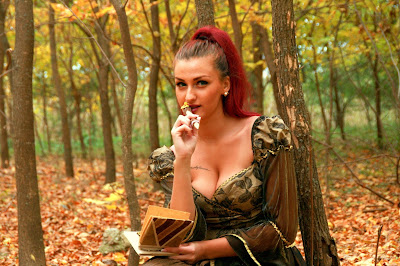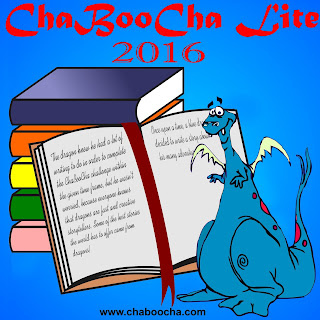The Big Questions: Tips on Building a Fantasy World
by Daniel Swensen
Escaping to other times and places is one of the great
appeals of fantasy. Fiction allows us to imagine and embrace the impossible, to
dwell in worlds that defy reality and flaunt physical laws. As readers, we can
lose ourselves in fictional history and immerse ourselves in nonexistent
cultures. But as authors, creating a fantasy world from scratch can be an
intimidating (and time-consuming) task. Where do you begin -- and where does it
all end?
I don’t pretend to have all the answers, because I don’t
think there’s any One True Way to build a fantasy world. The secret lies in
finding an approach that works for you, experimenting with it, and not being
afraid to change things up when you hit a wall. (Actually, I think that’s the
secret to solving most writing ills, and it’s not much of a secret because that’s
what I tell anyone whenever they ask).
Still, I’ve learned a few things in my twenty-plus years of
building fantasy worlds for gaming and fiction. Here are a few tips to get you
started on building a great, original fantasy world.
Ask the Big Questions
In my experience, the best first question to ask yourself
when world-building is: how does this world differ from ours? If you’re
creating a fantasy world that’s familiar but unlike our own (such as the
pseudo-European-medieval setting that characterizes most epic fantasy), ask
yourself how this world differs from those everyone has seen before.
This will inform many of the decisions that follow, and help
you focus on the things that matter. No one really cares about how your world
is the same. The appeal lies in the big differences and the little
details.
You might start with
the broad strokes:
●
A world like ours, but vampires and werewolves
are real (Twilight, a whole lot of urban fantasy)
●
A fantasy world with elves, dwarves, and dragons
(Lord of the Rings, a whole lot of traditional fantasy)
●
A faraway galaxy populated with aliens, galactic
empires and advanced technology (space opera a la Star Wars)
Your question could also take the form of a “what if:”
●
What if magic was real but hidden from the
public? (Harry Potter)
●
What if the universe was ruled by indifferent
alien gods? (H.P. Lovecraft’s mythos)
The next big question might be: how do the differences
affect the characters? The answer will vary depending on your chosen
setting. A single big “what if” question can fuel an entire book or series. A
world where magic is a hidden secret might not affect the majority of the
population; a world where water is nearly nonexistent, or where people
mysteriously float into space when they fall asleep, will affect everybody in
big, impossible-to-ignore ways.
The bigger the “what ifs” (and the more of them you have),
the more ambitious your world-building will be. The answers to these questions
will likely shape the culture and history of your world.
Choose Your Approach
Now that you’ve picked a direction, it’s time to decide
which way you want to build your world: from the top down, or from the bottom
up.
A top-down approach means you build all the big
questions and answers into your world-building on the macro scale. With this
approach, you might write up history, outline major events of the past, draw
maps, create figures of history and legend, and detail their lives. You’ll do
this before you even get to your main characters and their story.
The background you create may never explicitly come into
play in your prose, but it can inform character and narrative in rich, subtle
ways. A great example of this is Lord of the Rings, the gold standard
for detailed, voluminous history. You can read and enjoy The Hobbit and Lord
of the Rings without knowing the details of The Silmarillion or the
copious appendices -- but it deepens the experience if you do.
Advantages:
●
You’ll have lots of rich, detailed history to
draw on (once you’re finished)
●
Material you don’t use can fuel future books or
side projects.
●
It can be a rewarding pastime on its own.
Drawbacks:
●
It’s a lot of work (and a lot of time spent not
writing your book).
●
You may create material you’ll never use.
●
The temptation to bloat your prose with
historical details you spent so much time on can be huge.
A bottom-up approach starts with the characters and
events you’re writing about right now. With this approach, you don’t write the
history of the world and details about events happening far away. You only
build as much world as you need, and you create the world as it becomes
necessary. Faraway lands and past events can remain mysterious and undefined
until you need them. This approach works best for stories that focus on
character, or for what-if questions that are specific and localized.
Advantages:
●
It’s faster than the top-down approach.
●
Only build as much world as you need.
●
This approach lets you stay focused on character
and story.
Drawbacks:
●
You’ll have to take good notes to avoid
inconsistencies and contradictions.
●
You might have more work to do in revisions
(depending on how good you were at taking notes).
●
Flaws and weaknesses in your fantasy world might
reveal themselves as you write (this is not necessarily a bad thing).
Get Inspired (and Steal from the Best)
Building up a fantasy world can be a blast -- but it can
also be a lot of work, and (just as with writing prose), it’s possible to hit a
wall and lose your inspiration. Don’t worry when this happens -- there’s a
bottomless well of inspiration for you to draw from.
Here are a few things you can try if you’re feeling
uninspired:
●
Fire up
Google Earth and look at the architecture and geography of
faraway places.
●
Watch a good historical documentary (these can
be great for generating what-if questions)
●
Feast your eyes on some great fantasy art (
Pinterest is a great place to begin).
Most of all, have a good time building your world -- if you
find it fascinating and fun to build, chances are your readers will have a
great time exploring it.
*****
Daniel Swensen is a career freelance writer and fantasy
author who lives in Montana with his wife and two spoiled cats. Orison,
his first novel, was published by Nine Muse Press in 2014.
*****
Give-away
Today's give-away is a copy of the book
Orison by Daniel Swensen.
If you are a signed-up member of ChaBooCha, all you need to do to be entered into the drawing for this book is comment on this blog post. Winners will be selected from a random number generator on March 31st at noon (GMT).










































